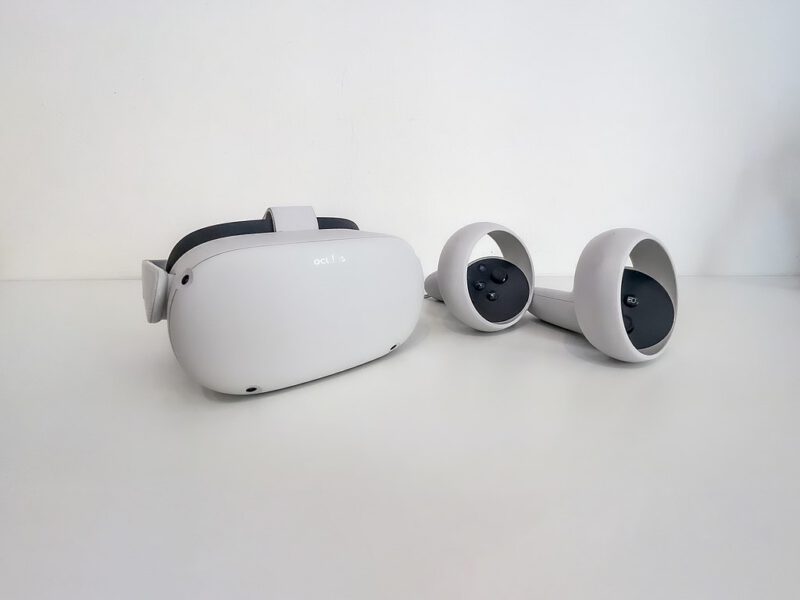Meta Platforms Inc. has had a tumultuous month. The company’s lofty vision of a connected metaverse where users can interact virtually on a mass scale is not going according to plan. Following an internal report in mid-October that found metaverse platforms Decentraland and The Sandbox each have fewer than 1,000 “daily active” users, Meta put the Horizon platform into “lockdown” — pausing the rollout of new features while it works to improve the user experience of existing elements in the virtual reality world.
The report also found only 9% of worlds built by users are visited by at least 50 people; most never receive any visits at all.
Users have cited glitches and bizarre brand content in the worlds as a few of the reasons for not returning to the virtual landscapes.
Major brands including Nike, Wendy’s, Samsung, Coca-Cola, Louis Vuitton, Adidas, Gucci and many, many more have planted their flag in the various worlds of the metaverse, leading to some users becoming overwhelmed by the barrage of ads.
It seems nowhere is safe from the ever-growing reach of modern capitalism.
Early interactive platforms that paved the way for the metaverse like Runescape and IMVU provided an escape from the drudgery of reality, but Meta may have made a critical miscalculation by allowing the external to invade what was once a sacred space.
Who wants to spend their leisure time in a poorly re-created beta version of our already stressful reality?
To answer this question, I strapped on my Oculus Quest 2 (now re-branded Meta Quest) headset and delved into regions unknown. This is what I found:
Horizon Worlds
I began my sojourn by patronizing one of Meta’s official metaverse apps: Horizon Worlds. Upon landing in the lobby, I was greeted cordially by two users.
My first impression was one of surprise at the openness of everyone within the virtual world. As our physical world becomes more populated, it becomes less connected. It is a cardinal sin to simply approach a stranger at a movie theater or restaurant and begin a conversation.
Most people — myself included — immediately assume the intruder wants something from them. They are a salesperson seeking a transactional relationship of some kind. At a bar, concert, or any function where copious amounts of alcohol are served, the barricades of personal space are temporarily removed, but the guard must always be up to a degree.
The metaverse re-writes the conventional script of social interaction — and that is by design. Mark Zuckerberg is, by most accounts, an awkward fellow. A typical computer geek, it’s unlikely he anticipated becoming a household name; it’s even less likely he foresaw having to testify in front of Congress — a position in which he was visibly uncomfortable. His PR attempts have been mercilessly mocked and memed, begetting comparisons of his personality with the lifeless machinations of a robot.
It makes sense, then, that he would endeavor to build a virtual world where he and a growing segment of anxiety-stricken millennials and Gen Zs could feel at home.
We are all accustomed to the phenomenon of otherwise diffident or non-confrontational keyboard warriors trolling on social media and possessing the loudest voice in the chat room.
The unique blend of anonymity and face-to-virtual face contact in the metaverse seems to bring out the confidence and sociability of people while preserving the moderated countenance of civilized humans present during real-world interactions.
The platform also provides a reprieve from potentially unsafe or overly stressful real-world social situations.
One user in Horizons explained he preferred to interact virtually because socializing in his local pubs was liable to end in a physical confrontation — which prompted me to make a note to avoid Devon during my next trip to England.
In-App Features
According to another Horizon user, the featured concerts, documentaries, and games on the app had “room for improvement” — a sentiment I largely agree with.
The 3D theaters were initially mesmerizing, but the gleam quickly wore off and I was left with a resounding feeling of “what do I do now?”
Rudimentary graphics and shallow mechanics contribute to the in-app games feeling like a novelty rather than an immersive experience with replay value. Star Wars-themed first-player shooters and space battles provided a modicum of entertainment, but simply do not have the same value as a well-developed console or PC titles.
One user explained she was demo-ing VR for the first time by using a friend’s headset. She enjoyed some of the apps Meta offers, but was similarly underwhelmed by the Horizons in-app game experience and overwhelmed by the rising prices for apps, many of which include in-game purchases along with the initial one.
Meta may have lost over $700 billion in market value since the rollout of its highly-anticipated metaverse, but a foundation has been firmly established that gives the company a significant headstart on any competition. Crude as it is in its current iteration, Zuckerberg’s vision of a purely virtual social experience is moving forward. And like it or not, virtual social communities are better than none at all.
Stay tuned for Adventures in the Metaverse: Part 2 – Decentraland and Other Strange Plains











